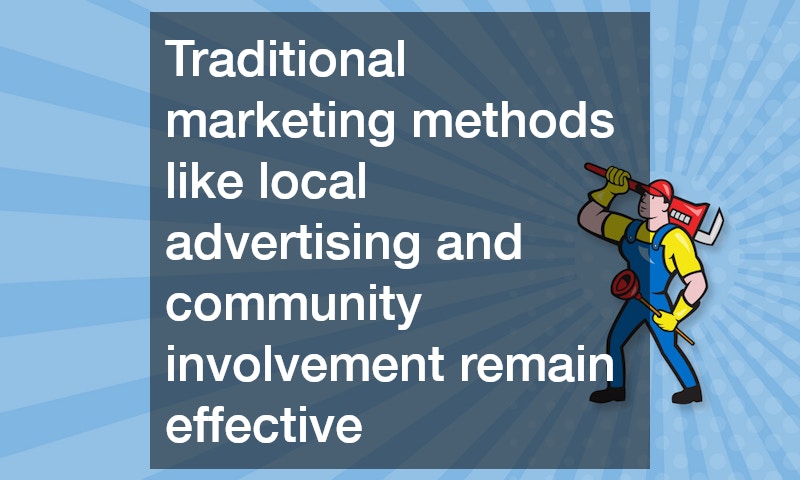Embarking on the journey of starting a plumbing contractor business first necessitates a thorough understanding of the plumbing industry. The industry is vast and multifaceted, requiring knowledge of various types of plumbing systems, regulatory compliance, and evolving technologies. Research the latest trends, such as eco-friendly plumbing systems and smart home integration, to stay ahead of the competition.
It’s beneficial to shadow experienced plumbers to gain firsthand insight into daily operations and customer interactions. A comprehensive understanding will not only help in navigating challenges but also in identifying niche areas where you can specialize and excel.
Step 1: Understand the Plumbing Industry
Understanding the plumbing industry also involves recognizing the demand for services in your target market. Conduct market research to identify if there are underserved areas or particular services that are in high demand, such as emergency repairs or new installations. Awareness of local competitors and their offerings will help you pinpoint unique selling propositions that can differentiate your business. Additionally, establishing a network with suppliers will ensure you have access to quality materials at competitive prices. Being well-informed about industry mechanics positions your business as knowledgeable and reliable.
Industry insights extend to understanding customer expectations in today’s digital age. Customers appreciate transparency, timely service, and skilled workmanship. Online presence, through a professional website and active social media profiles, can significantly augment your business’s reputation. Building strong customer relationships through follow-up services and soliciting feedback also plays a crucial role in client retention. An industry-savvy approach equips you with the necessary skills to not only launch but sustainably grow your plumbing contractor business.
Step 2: Obtain Required Licenses and Certifications
Before starting operations, securing all necessary licenses and certifications is crucial for a plumbing contractor business. The requirements can vary significantly depending on your location, so it’s essential to research the specific licensing processes in your area. Most regions require passing a certification exam that tests your understanding of plumbing codes and practices. Besides a general contractor’s license, certain specialties like gas fitting or backflow prevention may require additional credentials. Keeping these licenses active through continuous education and renewal is also vital to staying compliant and credible.
Acquiring necessary licenses not only fulfills legal obligations but also reassures your clients of your professionalism. Licenses serve as a stamp of legitimacy, showcasing that your business adheres to industry standards and regulations. They protect you from potential legal issues and provide clients with confidence about the quality and safety of your work. Moreover, being licensed enables you to obtain professional liability insurance, offering added protection in case of disputes or accidents. Prioritizing legal compliance through proper licensing is a fundamental building block of a trustworthy plumbing contractor business.
Setting up a plumbing contractor business involves substantial paperwork and fees. It’s advisable to consult with a business attorney or advisor to ensure that you understand all regulatory requirements and associated costs. They can assist in filing the requisite forms and guiding you through the process, alleviating any potential challenges you might encounter. By investing effort in the initial stages to meet all legal requirements, you pave the way for a smoother operational process down the line. Ultimately, having proper documentation signifies your seriousness and dedication to running a reputable business.
Step 3: Develop a Business Plan and Marketing Strategy
Creating a robust business plan is a cornerstone for launching a successful plumbing contractor business. A well-crafted plan outlines your business’s vision and objectives, providing a roadmap for growth. It includes financial projections, target market analysis, and detailed service offerings. A comprehensive business plan can also be instrumental when seeking funding from investors or financial institutions. It demonstrates your commitment to structured growth and your understanding of the industry dynamics.
Simultaneously, developing an effective marketing strategy is essential in establishing a brand presence. With digital advancements, online marketing has become indispensable. Investing in a user-friendly website and employing SEO techniques can enhance your visibility in search results, attracting potential clients. Social media platforms offer valuable avenues for engaging with a larger audience and building brand awareness. Leveraging local directories and fostering client testimonials can further bolster your business’s credibility and reach.
Additionally, traditional marketing methods like local advertising and community involvement remain effective. Participating in community events or sponsoring local causes can help establish your business as a community-oriented service provider. Networking with local real estate agents, builders, or vendors can lead to valuable referrals. Regularly assessing and refining your marketing strategies based on performance analytics ensures a dynamic approach to client acquisition. Combining digital and traditional marketing tactics provides a holistic strategy to successfully launch and grow your plumbing contractor business.
.

